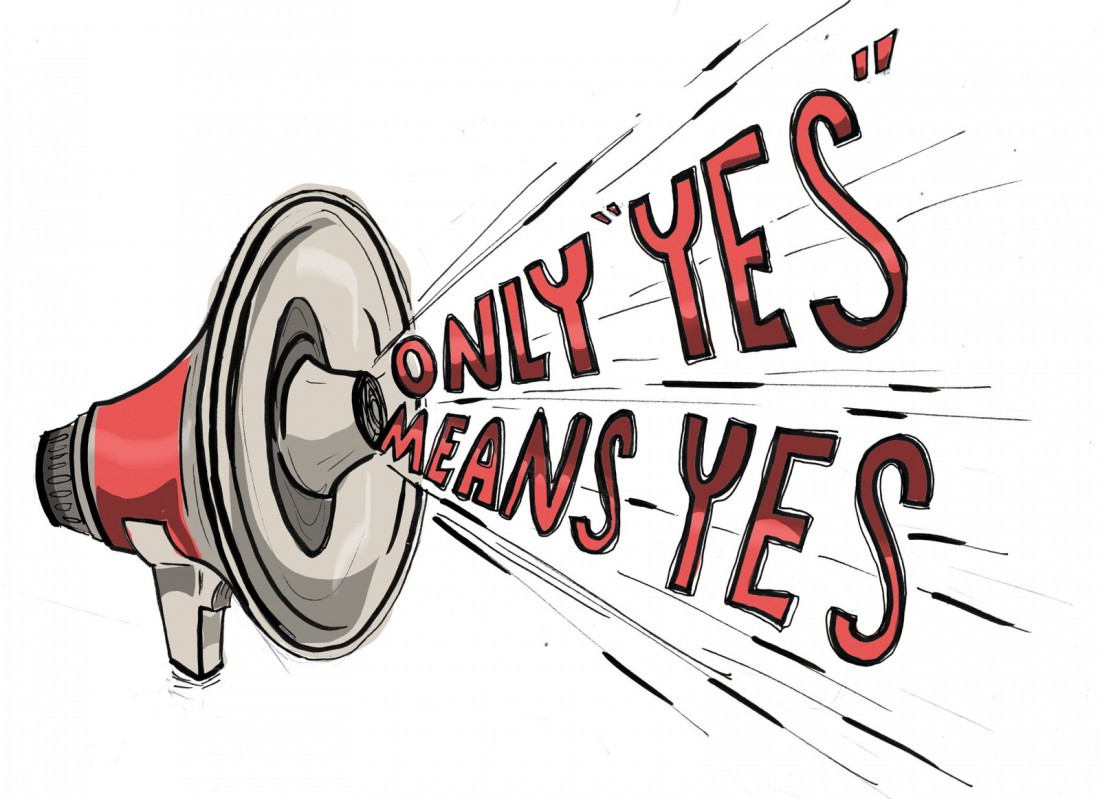Study up and get SMRT
U of W hopes to build consent culture through new Sexual Misconduct Protocol
First-year students can expect a new component to their University of Winnipeg orientation.
In accordance with the University of Winnipeg’s Sexual Misconduct Protocol, which was officially announced in March, all first-year students, Wesmen athletes, administrators, and members of the University of Winnipeg Students’ Association (UWSA) will undergo mandatory sexual misconduct training. The educational campaign aims to change campus culture and inform students of resources and supports on campus.
The protocol, which falls under the university’s Respectful Learning and Work Environment Policy, incorporates mandatory training, optional seminars, the development of a 24/7 Sexual Misconduct Response Team (SMRT), and an active effort to stir conversation about sexual misconduct. The document clearly defines sexual harassment, stalking, sexual assault, and consent, and provides a definitive guideline for responding to reports of sexual misconduct.
Jan Byrd, executive director of Wellness and Student Life, says the developments for the policy began with administrators. Administrators were quickly joined by members of the UWSA, such as Emily Epp, vice-president of Internal Affairs for the UWSA, and Lorraine Parrington, Klinic Community Health Centre’s sexual assault crisis co-ordinator.
Epp says the seminars begin with a video that introduces issues of consent and sexual violence to spur conversation about rape culture.
“First year students probably don’t know much about rape culture. It orients them with that language and finds ways to create consent culture instead of rape culture on campus,” Epp says.
Nadia Larosa, who is involved with the Special Projects segment of Klinic’s Sexual Assault Crisis Program, says that one of the biggest challenges is managing common misconceptions.
According to Larosa, some of the most flagrant myths include that sexual violence is a crime of passion and irresistibility, that a woman’s manner of dress can provoke sexual violence, and that “good girls” don’t get raped.
“I think there still is this general misunderstanding of what sexual violence is. Myths and misconceptions do two things: they take responsibility away from the person who is choosing to behave this way and put the responsibility on the person who has been victimized,” Larosa says.
Byrd says the protocol plans to challenge these myths with patience and a sense of humour.
“We’re still working against this rape culture and victim-blaming. It’s like turning around a giant ship when you think of culture change. It just takes time and you have to stay on it.”
Relative to other Canadian universities, the University of Winnipeg’s Sexual Misconduct Protocol is far ahead. Often universities lump sexual misconduct along with general harassment without providing clear terms of definition or response.
“I know we’re further ahead and we’re really proud of that. We want to be an institution that leads the way, especially in social justice and equity and creating respectful culture,” Byrd says. “I think we stand out and will continue to stand out in the fact that we have the 24/7 support team.”
“We don’t want to be reacting to something on campus,” Byrd adds.
Byrd says the goal is to develop a proactive and all encompassing program to address sexual harassment on campus. “So that when things do happen – and we know they will – that we know what to do.”
For more about the new policy, visit uwinnipeg.ca/sexual-misconduct.
Published in Volume 70, Number 1 of The Uniter (September 10, 2015)







